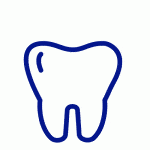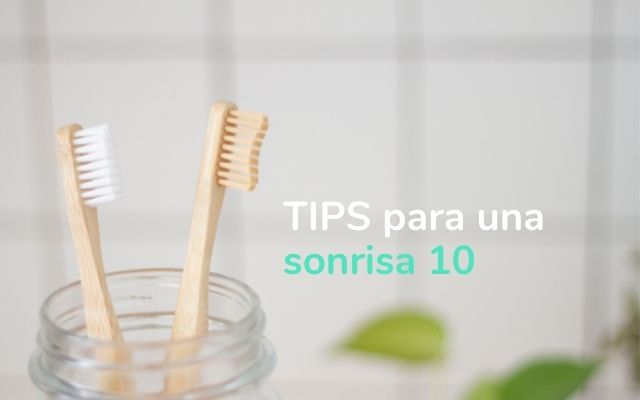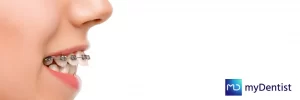PRE-VE-tion, your best friend
It sounds like a cliché in the health world. But it’s the best way to save yourself a lot of hassle (and yes, a lot of money too). We know that sometimes it’s lazy, but following a TOP dental hygiene routine is a decision you won’t regret. Isn’t it better to spend a few minutes every day than to assume irreversible damage to your mouth and costs that you may not be able to afford?
To help you, here are some tips to help you achieve your ideal routine.
TIPS for a dental hygiene of 10:
-
Brush your teeth after every meal.
Ok, if you snack between meals and don't have your toothbrush with you, brush at least twice a day. -
Brush for two minutes.
Remember the 2x2 rule: twice a day, at least two minutes each time. -
Use a brush of medium hardness.
We recommend using an electric toothbrush: they remove much more plaque than manual toothbrushes.
(The fluoride level of your toothpaste is best recommended by your hygienist/dentist). -
Change brush every 3 months.
It is essential to prevent the accumulation of bacteria. Tip: it is easier to remember if you make it coincide with the entrance of each new season. -
Floss every day.
Yes, it's lazy, but remember: it's an investment in the future. It is just as important as brushing and helps remove plaque between your teeth to prevent gum disease. -
Use a mouthwash to complete your routine.
This is only if deemed necessary by your hygienist/dentist. Some rinses contain alcohol or chlorhexidine and can end up being counterproductive for your teeth and gums. -
Follow a healthy diet.
It never hurts to say it: avoid smoking and sugar consumption. -
Visit your dentist regularly.
Get regular check-ups and professional dental hygiene. Professionals use special instruments to scrape the surface of the teeth and remove the accumulated plaque and tartar that you are unable to remove at home.
Extra tip:
If you have braces, the use of an interdental brush will give you that extra boost you need to keep everything in order. Don’t forget to check out our guide
how to know if I need braces
to find out for sure.
Remember!
In addition to all these little tips, you need to know that the health of your mouth has a totally direct relationship with your overall health. Yes, what you read. Although it may seem strange to you, there are studies and research that claim that diabetes, cardiovascular disease or even the possible development of Alzheimer’s disease are closely linked to dental health, and especially to the level of bacteria in your gums.
So listen to us and don’t neglect your dental hygiene. Don’t let bacteria ruin your smile and make prevention your best weapon!






